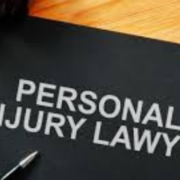Questions To Ask A Personal Injury Lawyer?
Yesterday, you were driving south on I‑15, thinking about lunch. Then a distracted driver glanced at his phone, drifted over, and sent your car spinning. Now your shoulder throbs, bills pile up, and the insurance adjuster keeps calling “to finish the file.”
You need help, yet hiring a lawyer can feel as stressful as the crash itself. Utah law lets you collect damages if you can prove the other party’s fault and show how the wreck changed your life. That takes skill, money, and plain hard work.
An initial consultation with a personal injury attorney like Chris Cockayne costs no more than your time, and a smart list of questions lets you gauge their skill before signing. In the following guide, real stories are used to illustrate exactly the questions to ask so you can feel comfortable and confident when you go into any office.
Key Takeaways
- Seasoned lawyers know local courts well
- Fee contracts must be crystal clear
- Strong resources force insurers to pay
- Light caseload means quick phone replies
- Trial wins boost settlement offers
- Honest talk builds lasting trust
12 Questions to Ask a Personal Injury Lawyer Before Hiring Them
As if you are hiring a builder for your house, think of the first meeting as the first meeting. You would never hire one without asking about previous jobs, crew size, and cost. Same idea here. Stay calm, keep a notebook handy. The personal injury lawyer works for you, not the other way around.
A confident attorney welcomes every question on this list because good communication now keeps surprises away later.
Q1: How Long Have They Been Practicing Personal Injury Law?
Years on a bar card matter, but only if those years were spent handling injury claims, not drafting wills.
Ask: “How many injury cases have you closed since you started?”
A veteran with a steady case flow knows which Salt Lake County judges move dockets fast and which like longer settlement talks. Local experience also helps with doctors who agree to wait for payment out of the final check.
A lawyer willing to share lessons (good or bad) shows humility and growth. One more tip: check the Utah State Bar’s online roster to see if any past complaints were filed. A clean record plus ten or more years in the field is a solid start.
Q2: Can I Settle My Case Out of Court?
Most Utah claims end at the negotiating table, not the courthouse. Still, you want a lawyer who can explain both roads. The answer should outline a clear timeline: collect records, wait until doctors know your long‑term outlook, send a demand letter, then talk numbers.
Ask, “What percentage of your cases settle before filing suit?”
and
“How often do you use private mediators?”
A balanced attorney values a settlement for speed but files suit when an adjuster refuses to play fair. Also, request average settlement ranges for injuries like yours.
A personal injury lawyer who lists numbers without over‑promising shows honesty. Remember, quick cash often means less cash; the right lawyer finds the sweet spot.
Q3: What Area of Personal Injury Do You Handle Most?
A jack‑of‑all‑trades may dabble in many fields but master none. If your injury came from a trucking crash on icy U.S. 40, you want someone who spends most days on traffic cases, not dog bites.
Ask for percentages: “How much of your caseload involves vehicle collisions?”
Follow‑up: “What experts do you keep on call for that work?”
Truck accidents often need a reconstruction engineer or a sleep expert to review driver logs. A lawyer steeped in that niche already has those contacts and can get reports without delay, saving you weeks.
Q4: Have They Handled Cases Like Yours Before?
Specific wins matter more than broad claims. If you slipped inside a grocery store in Provo, ask for at least two past slip‑and‑fall results. Listen for details: how they proved the floor was wet, how they fought “open and obvious” defenses, and the final dollar award.
Ask what went wrong in tough losses too. Real talk about setbacks shows the lawyer knows how to pivot.
Bonus: Request a simple chart of three cases (date, injury, result) so you can compare numbers later at home.
Q5: Who Will Work on My Case?
A law firm is a team sport. You deserve to know every player and how to reach them.
Expect concrete answers on:
- Lead lawyer: plans strategy, appears at big hearings
- Associate: drafts motions, handles some depositions
- Paralegal: orders medical files, tracks bills
- Investigator: shoots scene photos, talks to witnesses
- Front desk: routes calls, sets meetings
Ask for direct email and phone lines. Also, ask how often you will hear from each person. Weekly email updates or a client portal where you see notes in real time? You won’t feel lost when you call for an update on your MRI report.
Q6: How Many Personal Injury Cases Are You Working On Right Now?
A personal injury attorney juggling eighty cases might miss your voicemail. One handling six may lack enough practice to push insurers. Ask for the current number and how they manage deadlines. Good firms use software that pings staff about court filing dates and medical record orders.
Also ask, “What is your average response time to client calls?”
A promise of a reply within one business day, backed by a real history of following through, tells you the lawyer values personal service.
Q7: What Challenges Do You See With My Case?
If a lawyer says, “None, this is easy money,” walk out. Every claim has hurdles: delayed treatment, preexisting arthritis, limited coverage, shaky witness stories. A good attorney lists each hurdle and then explains a workaround.
For instance, if you waited two weeks to see a doctor because you hoped the pain would fade, the lawyer might schedule a treating physician to explain why that delay is common. Honest talk now prevents nasty surprises when an adjuster digs through your medical timeline.
Q8: What Is Your Trial Experience?
Insurance adjusters track which lawyers actually roll the dice before a jury. Ask for numbers you can verify.
In the middle of the chat, jot these down:
- Total jury trials in the last decade
- Most recent verdict date and county
- Highest and lowest awards won
Look for at least a handful of verdicts, not just one. Trial skill pushes settlement numbers higher because carriers fear the courtroom. If the lawyer second‑chaired those trials, ask who led them and what they learned.
Q9: How Long Does a Case Like Mine Usually Take?
Your rent and rehab bills will not wait, so timing matters. A straightforward rear‑end crash with fully healed injuries may finish in nine months. A spinal fusion case can take two years if surgeons wait to confirm hardware success.
The lawyer’s outline should slice the process into steps. It includes investigation, treatment, demand drafting, talks, and, if needed, a lawsuit. Ask how often they give updates. Monthly check‑ins, even if nothing happened, show respect for your stress and budget planning.
Q10: Do You Have the Resources to Fully Take On My Case?
Depositions, expert reports, and trial graphics cost real cash. Ask if the firm pays these costs upfront and if so, whether they cap spending without your OK. Look for signs of healthy finances: modern case software, in‑house video depo tools, and a dedicated nurse consultant for medical reviews.
Also, confirm the firm carries professional liability insurance. This isn’t about fear; it just shows maturity and stability. A well‑funded lawyer never has to settle cheaply because they ran out of money for experts.
Q11: How Much Are Your Contingency Fees?
Most Utah lawyers take one-third of any settlement before suit and forty percent once trial prep begins. Still, you need every detail in writing.
Pin down three things:
- The rate at each phase
- Whether costs come off the top before the fee cut
- Who pays the costs if you lose
Ask for a sample disbursement sheet: “If my case settles for one hundred fifty thousand dollars with eight thousand in costs, how much reaches my pocket?” A clear answer today beats ugly surprises later.
Q12: If I Lose, Will I Owe Out‑of‑Pocket Costs?
No fee unless you win often hides the cost issue. Filing fees, medical record charges, and expert consults add up fast. Some firms absorb those if they lose; others bill you. Ask for the policy in plain English. If repayment is required, see if they offer interest‑free plans. Knowing the worst‑case bill helps you sleep easier while the case moves along.
Trust your gut. Lawyers who welcome hard questions and answers in everyday words usually handle clients with the same honesty after the contract is signed. Go home, read any paperwork slowly, and compare notes from two or three offices before you pick your advocate.
Get Free Consultation From an Experienced Personal Injury Attorney
Talking to a lawyer should never feel like walking into a car dealership. Cockayne Law keeps the first meeting relaxed and, more important, free. Bring your police report, hospital bills, and a list of missed workdays. The personal injury attorney (often a former insurance defense lawyer) will map out where the claim stands under Utah’s comparative fault rule, how medical liens work, and the deadline that applies to your facts.
You will leave with a written plan that covers evidence needs, a rough timeline, and a realistic payout range. No, they will not hand you a contract and pen before you reach the door. Take the papers home, weigh your options, and call back when you feel ready. That’s how trust starts, and trust wins cases.
Final Thoughts
The recovery process is already difficult enough without worrying about paperwork and court dates. A lawyer who listens, explains, and stays reachable can lift that weight. Use the twelve questions above, watch how each attorney answers, and never feel rushed. The right fit brings not only skill but peace of mind. As long as your legal fight is handled steadily, you can focus on healing when bills arrive or the adjuster calls. Make sure you keep your notebook on hand, follow up on references, and find an advocate who will treat you like a family member.
FAQs
What is my case worth?
Taking into account medical costs, lost wages, pain, and any lasting restrictions on work or hobbies can determine the value. As your lawyer reviews your records and talks with your doctors, he or she will give you a range, which will then be fine-tuned as new facts appear.
Who will be handling my case?
Your lead lawyer directs strategy, while associates draft documents and paralegals gather medical records. You should receive direct phone and email contacts for each person working on your file.
What are my case weaknesses?
Common weak spots include treatment gaps, prior injuries, limited coverage, or shaky witness accounts. Your lawyer should lay these out early and plan ways to plug the holes.
How are medical bills paid before settlement?
Health insurance, Med‑Pay on auto policies, or provider liens usually cover costs upfront. After settlement, your lawyer negotiates repayments so you keep as much of the final check as possible.

















